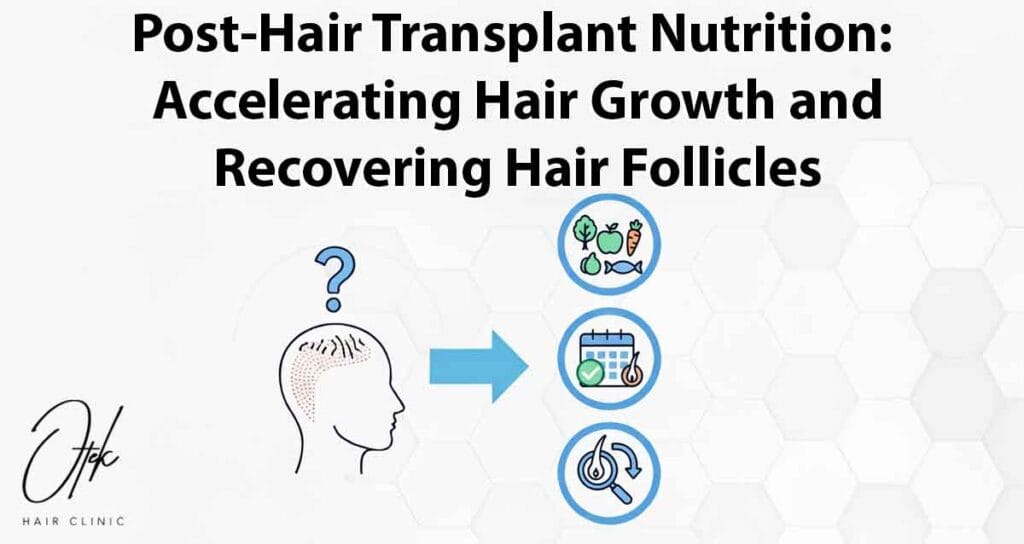Undergoing a hair transplant procedure is an exciting step towards restoring your hairline and regaining your confidence. While the surgical aspect is crucial, it’s equally important to focus on post-transplant care, including proper nutrition. A well-balanced diet plays a vital role in promoting healthy hair growth and supporting the recovery process. In this article, we will explore essential nutrients and dietary considerations to pay attention to after a hair transplant procedure, helping you optimize your results and accelerate the healing process.Protein Power:
Protein is the building block of hair, and consuming an adequate amount is crucial for post-transplant recovery. Ensure your diet includes lean sources of protein such as poultry, fish, eggs, legumes, and low-fat dairy products. These foods provide essential amino acids that contribute to strong, healthy hair follicles.Vitamin C for Collagen Production:
Vitamin C is a potent antioxidant that aids in collagen production, a key component for healthy hair growth. Citrus fruits, strawberries, bell peppers, and leafy green vegetables are excellent sources of vitamin C. Including these foods in your diet can promote tissue healing and provide nourishment to the newly transplanted hair follicles.
Iron-Rich Foods:
Iron deficiency can lead to hair loss, so ensuring an adequate intake of iron is crucial for hair health. Incorporate iron-rich foods such as lean red meat, spinach, lentils, and fortified cereals into your post-transplant diet. Pairing these foods with vitamin C-rich sources enhances iron absorption.Essential Fatty Acids:
Omega-3 fatty acids play a vital role in maintaining a healthy scalp and promoting hair growth. Include fatty fish like salmon, mackerel, and sardines, as well as flaxseeds, chia seeds, and walnuts in your meals. These foods provide the necessary omega-3 fatty acids to nourish the hair follicles and support their growth.Biotin for Hair Strength:
Biotin, also known as vitamin B7, is essential for maintaining healthy hair. Foods rich in biotin include eggs, almonds, sweet potatoes, and avocados. Incorporating these into your diet can help strengthen your hair strands, preventing breakage and promoting healthy regrowth.Stay Hydrated:
Proper hydration is essential for overall health and optimal hair growth. Drinking an adequate amount of water ensures that nutrients are efficiently delivered to the hair follicles, promoting their health and vitality. Aim to drink at least eight glasses of water per day.Avoid Excessive Alcohol and Caffeine:
Excessive alcohol consumption and high caffeine intake can have negative effects on hair health. They can dehydrate the body, leading to dry and brittle hair. Limit your alcohol intake and moderate your caffeine consumption to support healthy hair growth and overall well-being.Consult with a Nutritionist:
Every individual’s nutritional needs may vary based on factors such as age, gender, and overall health. Consider consulting with a nutritionist who can assess your specific requirements and create a personalized post-transplant nutrition plan tailored to your needs.
While a hair transplant procedure can restore your hairline, proper nutrition after the surgery plays a crucial role in optimizing results and promoting a healthy recovery. A well-balanced diet rich in protein, vitamins, minerals, and essential fatty acids can provide the necessary nutrients to support hair growth and strengthen the newly transplanted follicles. By incorporating these dietary considerations into your post-transplant routine, you can nourish your hair from within and enjoy the benefits of a successful hair restoration journey.
Call Us Today for FREE Consultations
ASK A QUESTION

